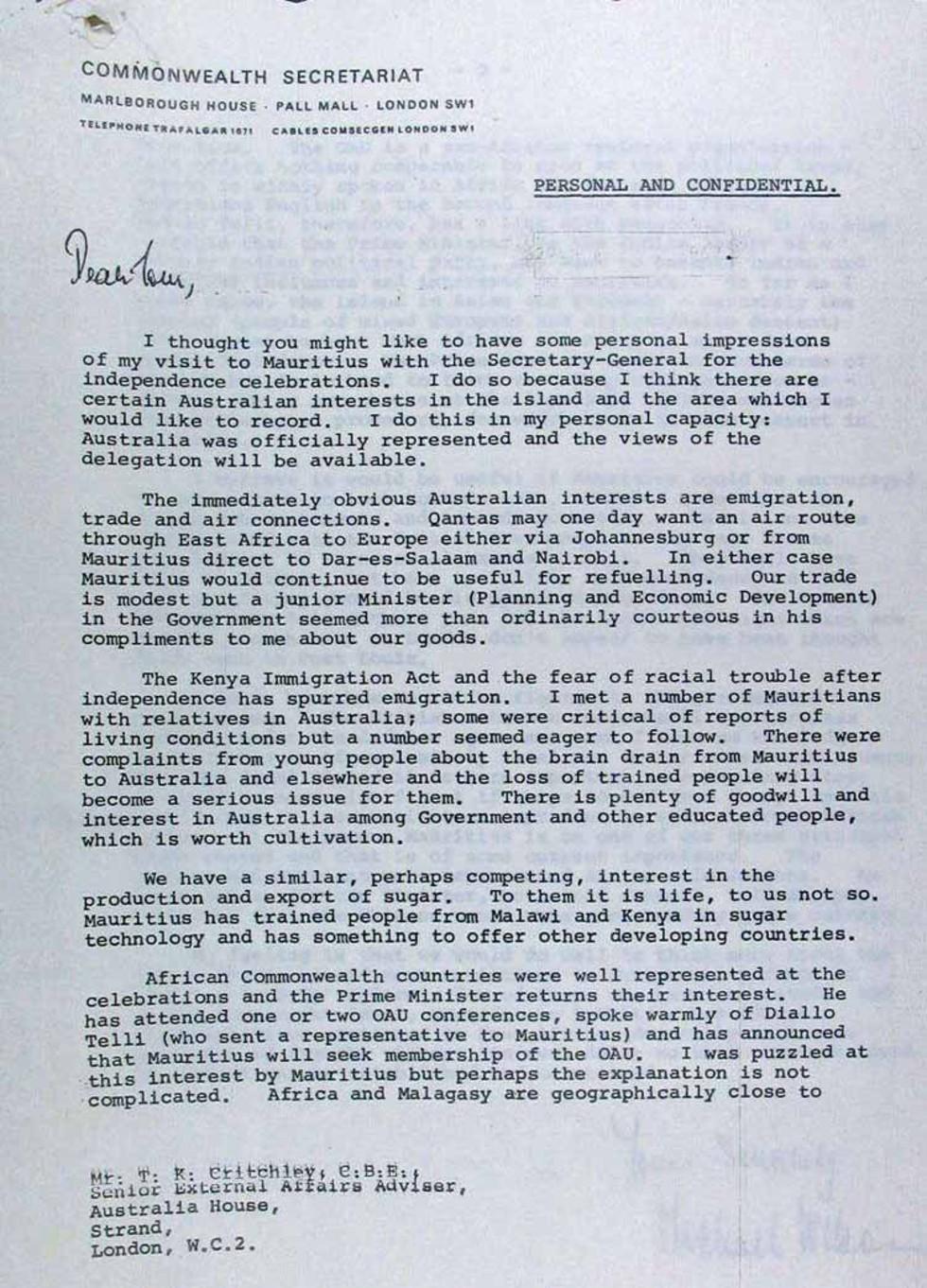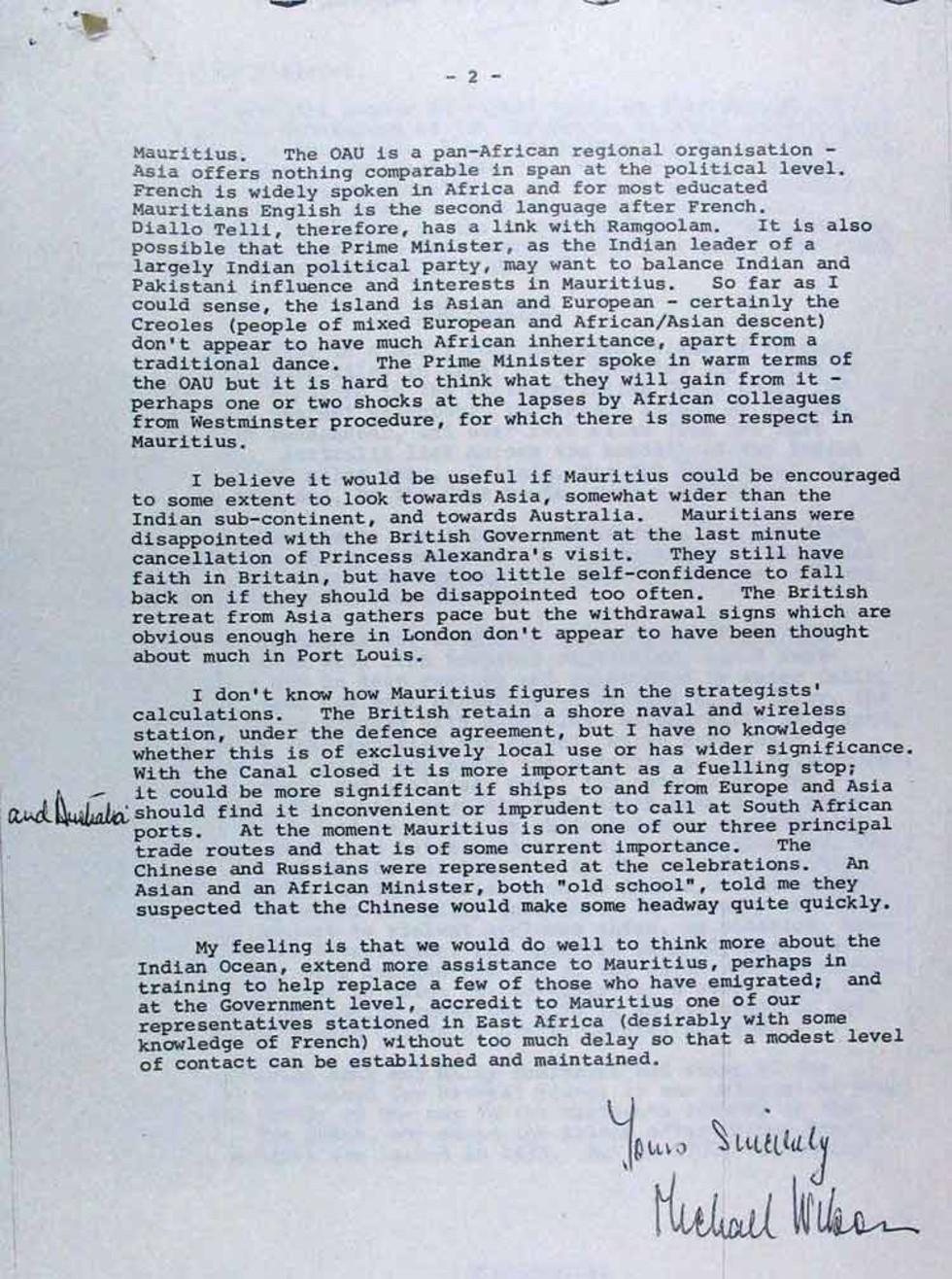
Personal and confidential letter to Tom Critchley, Senior External Affairs Adviser, Australia House, London from Michael Wilson, Commonwealth Secretariat, London.

Personal and confidential letter to Tom Critchley, Senior External Affairs Adviser, Australia House, London from Michael Wilson, Commonwealth Secretariat, London.



